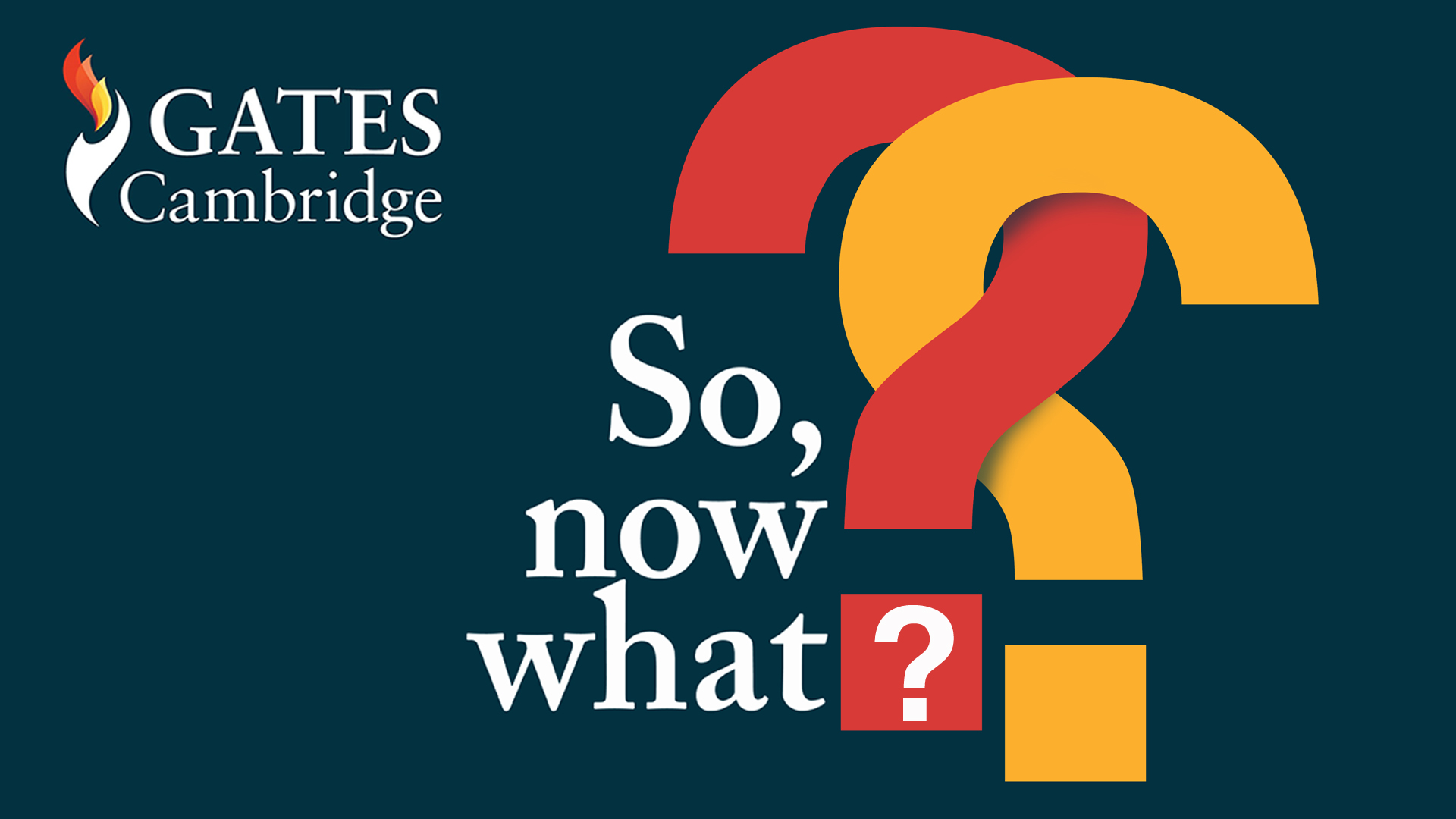
Three Gates Cambridge Scholars discuss tolerance and how to build it in the latest episode of the podcast So, Now What?
Three Gates Cambridge scholars debate how we can create a more tolerant world in the sixth episode* of the podcast So, now what?, launched today.
Alina Utrata, José Izquierdo and Farhan Samanani explore the importance of face-to-face interactions, trust and cooperation in building tolerance. They also examine the role of technology and social media in promoting or hindering tolerance.
In addition, they share their perspectives on using music, arts, and creativity as tools for fostering tolerance and empathy. The episode concludes with a call to volunteer, challenge personal narratives, and imagine a better future.
Alina Utrata [2020] is a PhD Candidate in Politics and International Studies at the University of Cambridge. Her research examines technology corporations beyond the traditional political/economic divide, theorising how and when corporations may enact a kind of political power, from cloud computing to digital payment systems. She also hosts and produces the podcast and newsletter The Anti-Dystopians, a politics podcast about tech. She is beginning as a Career Development Research Fellow at St. John’s College Oxford in October 2024.
José Manuel Izquierdo [2013] did his PhD in Music and is currently associate professor of music history in the Catholic University of Chile. He is primarily concerned about rediscovering the music of the Latin American past. He is directing a three-year publicly-funded project to rethink the classical or art music scene, going beyond the more traditional elite framework to one concerning identities, networks and different agencies.
Farhan Samanani [2013] is a Lecturer in Social Justice in the School of Education, Communication and Society at King’s College, London.
He explores how people build forms of connection, understanding and common cause across lines of meaningful difference, in the contemporary UK. An anthropologist by training, Farhan has published widely across several disciplines, including anthropology, migration studies and human geography. He is the author of How To Live With Each Other – An Anthropologist’s Notes on Sharing a Divided World.
The next episode of the Gates Cambridge podcast will be on the issue of peacekeeping and will air at the end of July with Professor Njoki Wamai [2012], Sara Habibi [2011] and Iryna Shuvalova [2016].
*To listen to the episode, click here.












